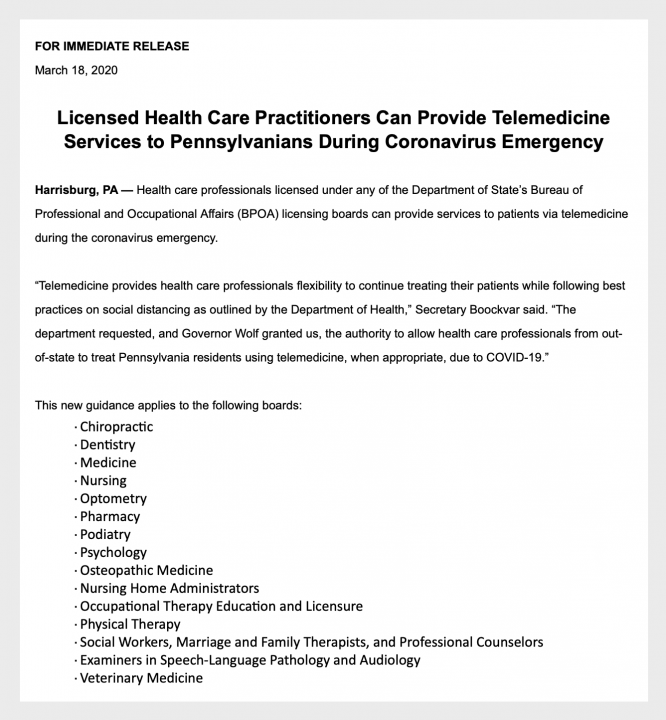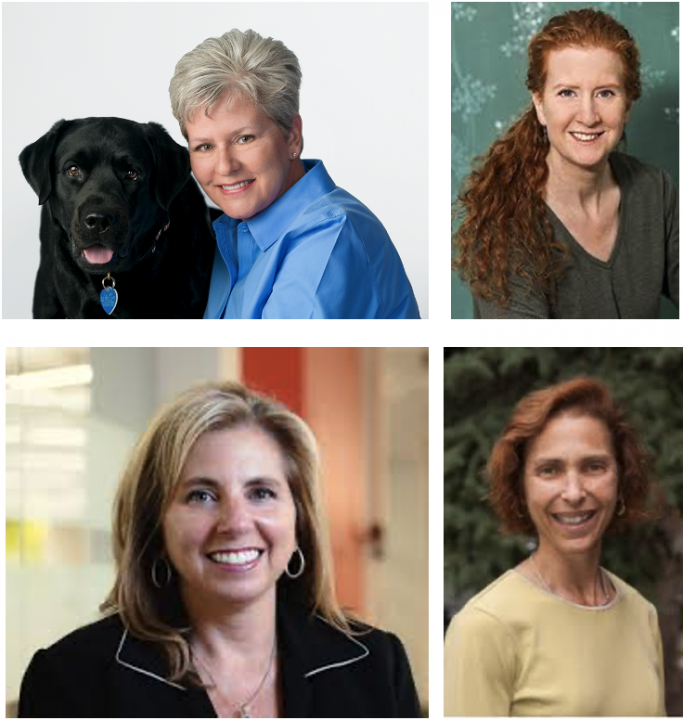The economic impacts of COVID-19 are already hitting close to home for many … and it’s just the tip of an iceberg. The fallout of this is going to be substantial and felt for a long time to come. Veterinary practices - although getting advice from the AVMA and their state VMAs (I hope) - seem to be scrambling in their response and are inconsistent in their protocols / operations. For example, there is - as of this afternoon - no hard and fast indication on whether veterinary practices are even considered “essential” services. In NY, the NYSVMS is taking a position (after consulting with their attorney) that they are “essential” although our Governor and the Federal government has not declared so (yet).
Just today I learned of one animal-related business in NYC shutting down - effective immediately - after 23 years in business. Because people are having to self-isolate for the next 3 weeks (minimum) - they have no need for the services that this business provides. One of the largest restrauteurs in NYC laid off 2000 people - bam. The economic impact of this is going to be felt for a long time, and I think it's going to affect our profession in a big way.
This forum provides for the sharing and exchange of ideas and concerns. I'm starting this thread and invite colleagues to share what's on their minds, as well as steps your practices are taking to protect and serve (humans and animals) in this unprecedented time. What is on your mind? What worries you most (if anything)? What steps have you implemented to try and get on the "up side" of all that is happening ... to protect yourself, your co-workers and/or staff, and the public? What information or guidance are you seeking?
In her presentation on the topic of Maintaining & Enhancing the Human-Animal Bond Through Telemedicine Dr. Charlotte Lacroix, DVM, JD discussed how telemedicine can serve to connect veterinary professionals with pet owners, and best practices for implementing telemedicine in the context of current legal concerns and standards.
We contacted Dr. Lacroix to comment further in light of the current environment and the coronavirus crisis, as veterinary practices are needing to try and maintain relationships and provide continuity of care and services to clients. Here is what she had to say:
"Check and lobby your states to allow the adoption of the American Association of Veterinary State Board’s interpretation of “sufficient knowledge” so veterinarians can - on a case by case basis - determine whether they can provide medical advice without a physical examination. considering softening the physical examination requirement of the required VCPR. Below is from Pennsylvania which suggests out of state health care professionals could provide telemedicine to Pennsylvania residents. The implications still need to be clarified. Also the FDA has relaxed certain of its guidelines" ...
In an effort to encourage social distancing between veterinarians and owners of sick animals, the Food and Drug Administration announced Tuesday that it would waive portions of the federal veterinarian-client-patient relationship (VCPR) that requires in-person visits.
Typically, the federal VCPR definition requires that veterinarians physically examine animal patients or visit the locations where the animals are kept. The FDA said that under the relaxed guidelines, the owner of a sick dog could share a video with a veterinarian and the veterinarian could prescribe a drug not approved for use in pets (when other drugs are not readily available). Or the a vet could remotely examine and diagnose a group of farm animals, and then authorize the use of certain drugs in the animals’ feed.
“We need to provide veterinarians with the latitude to expand the use of telemedicine in the care of animals, not only pets but also the animals that produce our food,” FDA Commissioner Stephen Hahn said in a statement. “The FDA is providing flexibility that will help veterinarians maintain the health of animals during the pandemic, while allowing for the social distancing that is so important in limiting the further spread of coronavirus disease across the country and the world.”
The agency cautioned that veterinarians still need to consider their state and local VCPR requirements. <<<
CONTACT your state board to get the answer for your state.

VetVine is hosting a live and interactive virtual Town Hall on Thursday, 4/2/20 at 1p ET / 10a PT (it will also be recorded and made available for viewing On Demand for those who can't join live). The session is titled Viruses mutate and right now you must, too. COVID-19 as a catalyst for change. Embracing change to protect and preserve your team, your practice, and your psyche.
The session Moderator is Sheri L. Berger, DVM and panelists include:

Kathleen Cooney, DVM, MS, CHPV, CCFP - Dr. Cooney has been practicing advanced end-of-life care since 2006. She is well-known for her work in companion animal euthanasia and has authored two books on the subject. Dr. Cooney has collaborated in euthanasia training for the AVMA, AAHA, IAAHPC, HABRI, the Fear Free program, and is Founder and Director of Education for the Companion Animal Euthanasia Training Academy (CAETA). She is past President of the International Association for Animal Hospice and Palliative Care (IAAHPC) and remains active in their organization, including design of their Animal Hospice and Palliative Care Certification Program, launched in 2016. In 2019, she received Training to become a Certified Compassion Fatigue Provider.
Lori Kogan, PhD - Dr. Kogan is a licensed psychologist and Professor of Clinical Sciences at the Colorado State University (CSU) College of Veterinary Medicine and Biomedical Sciences, Director of Human-Animal Interactions at CSU, chair of the American Psychological Association Human Animal Interaction Section, and the Editor of the Human-Animal Interaction Bulletin as well as textbooks including Pet Loss, Grief, and Therapeutic Interventions: Practitioners Navigating the Human-Animal Bond and Clinician's Guide to Treating Companion Animal Issues: Addressing Human-Animal Interaction.
*ASPCA Pet Health Insurance products are underwritten by the United States Fire Insurance Company, produced and administered by C&F Insurance Agency, Inc. (NPN # 3974227), a Crum & Forster company. The ASPCA® is not an insurer and is not engaged in the business of insurance. Through a licensing agreement, the ASPCA receives a royalty fee that is in exchange for use of the ASPCA’s marks and is not a charitable contribution.
Here are some COVID-19 resources that may be helpful to colleagues ... there is an abundance of information out there!
On the topic of "change" - provided by Gina Fortunato:
On finding the positive and empowering teams - provided by Dr. Wendy Hauser: